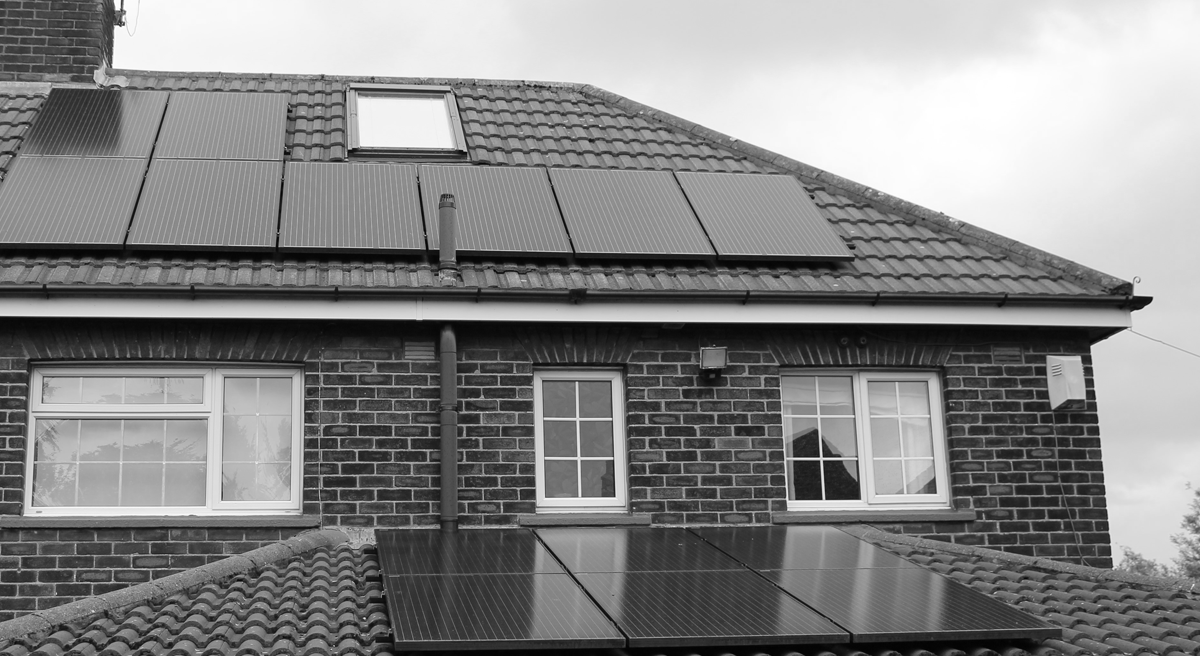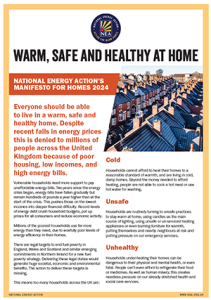
National Energy Action’s Manifesto for Homes 2024
Warm, Safe and Healthy at Home
June 2024
Will a general election help or hinder fuel poor households?
Love it or hate it, it’s hard to get away from politics at the moment. With the general election campaigns now in full swing, most of the main parties are busily setting out the details of their political offers. For the moment, despite the merit or otherwise of these policy proposals, most of the big challenges facing the country are being discussed but are actually on hold until ‘the nation decides’.
At National Energy Action’s annual conference in December last year, I chaired a session entitled – Will a general election help or hinder fuel poor households? The session explored the opportunity to secure ambitious manifesto commitments but also potentially creating a policy hiatus when over 5.6 million fuel poor households continue to face extreme challenges heating and powering their homes.
With the election taking place over summer, the challenge of people heating their homes has not been as prominent as one might expect given the impact of the energy crisis. Last week however we heard galling news; new analysis by Cornwall Insight warning whoever is in power they will face this autumn with energy bills back on the rise. Even if bills are not expected to rise to the levels we have all endured in recent years, a price rise in October will inevitably put the need for further support for unaffordable energy bills in the in-tray of whoever will be in power come 5 July.
This week, NEA has set out our own key priorities for how to address this almost inevitable situation and help accelerate the transition to a net zero energy system in a way which is fair and more affordable for low-income households. There should be no surprises what our key priorities are. As well as the need for providing vulnerable households with more support for unaffordable energy bills and addressing crushing levels of energy debt, we set out how policymakers can realise the benefits of legal fuel poverty commitments across the UK nations and radically overhaul our woefully energy-inefficient housing stock. Our five-point plan on energy efficiency, hopes to resuscitate efforts to meet legal fuel poverty duties and includes:
- Reintroducing a self-referral energy efficiency scheme for owner-occupied households to support people who live in the deepest fuel poverty.
- Expanding local authority energy efficiency delivery and targeting this activity in communities with the deepest fuel poverty levels.
- Extending Minimum Energy Efficiency Standards in private rented sector and ensure the Decent Homes Standard includes a requirement for all social housing to reach up to Energy Performance Band C by 2030. We also call for new methods to enforce tenants’ right to a warm, safe and healthy home.
- Extending the Energy Company Obligation (ECO) post March 2026 and maintaining its necessary focus on low-income and vulnerable households.
- Delivering new, high-quality housing for poorer households and consider specific support to make good on previous failed retrofit programmes.
It may still be too early to say if the general election will end up helping or hindering fuel poor households, but we hope our proposals would make a huge positive difference to ensure vulnerable people are warm, safe and healthy at home. They will also provide us with the litmus tests we will apply for any new government in the next UK Parliament.



